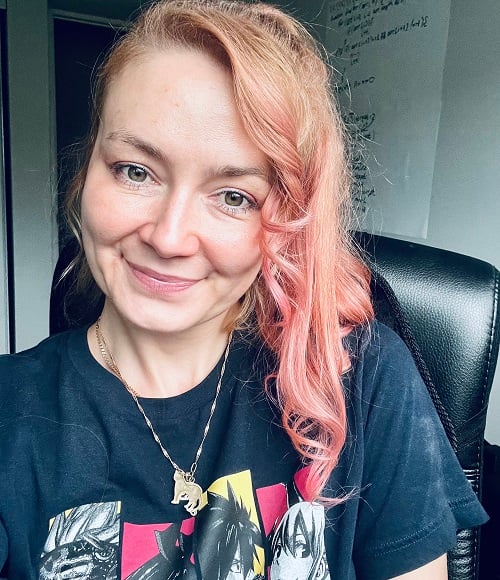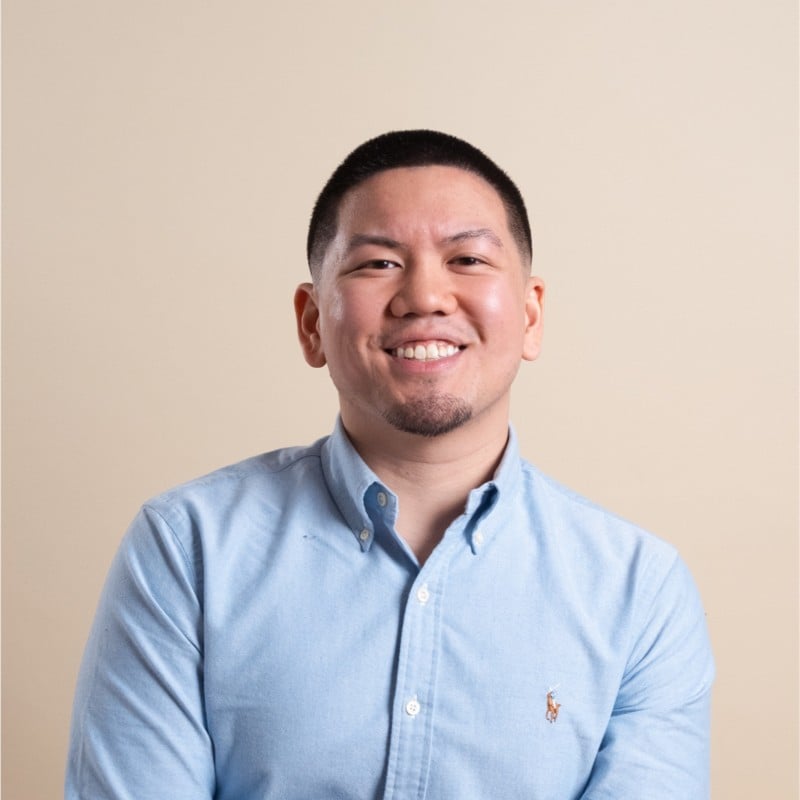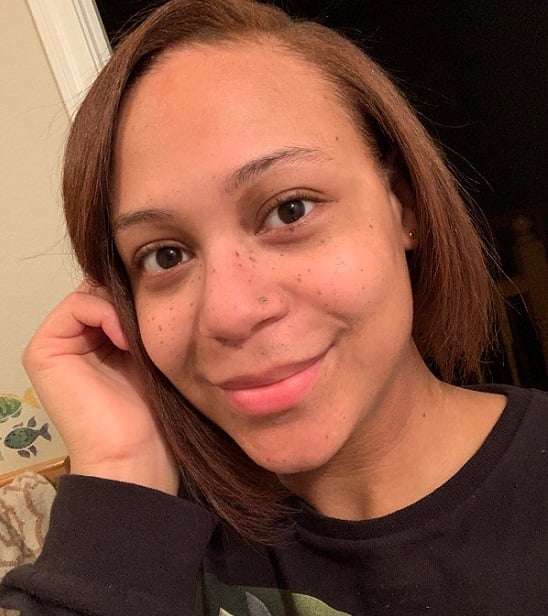If you’re here, you’re probably curious about what being a Springboard student is like. If you’ve never studied online before or are concerned about balancing other commitments (say, working full-time or raising a family), you’ve come to the right place.
In this post, we’ll dive deep into the Springboard experience, answering many of the questions we’ve heard from potential students over the years. You’ll get a glimpse into the day-to-day life of a Springboard student, learn about the structure of our courses, the support you’ll receive from industry-expert mentors, and the real-world projects that will build your portfolio. The aim is simple: demystify the process and show you how our approach to learning is personal and transformative.
Embarking on any new journey can be daunting, to say the least. By the end of this post, we hope to give you a clearer picture of what’s in store for you at Springboard.
Let’s get started!
Table of Contents
The Springboard curriculum
If you don’t have a technical background, becoming a fully-fledged data analyst, software engineer, cybersecurity expert, or UX designer in less than nine months may seem daunting — even impossible. Our students come from various backgrounds. They’re former recording artists, bartenders, teachers, EMTs, oil rig workers, and even stay-at-home parents.
That’s why we’ve designed our curriculums according to the principles of “progressive disclosure”— a fancy way of saying the information is introduced gradually, starting from basic concepts and progressively moving toward more advanced ones. That’s why many of our courses have a ‘prep’ version available for true beginners.
This approach helps learners build upon their existing knowledge and grasp new concepts more effectively. Syllabi for certain bootcamps include required “prework” — exercises to help you get familiar with a certain programming language or tool. For example, the Data Science Bootcamp starts with a crash course in statistics from Khan Academy on data distributions, quantitative data, and scatterplots.
Certain courses have prerequisites (for example, basic knowledge of HTML, CSS, and Javascript is required for the Software Engineering Bootcamp), but we offer introductory courses like our Software Engineering Bootcamp for Beginners and free learning paths to help you determine if the career path you’ve picked is right for you, and gain basic technical skills to help you enroll in the bootcamp or course you want.
Some courses also have a pre-course admission test (which we call the Technical Skills Survey, or TSS): a short test to see if you have the basic programming knowledge to succeed in the course. Every TSS has a dedicated study guide, and your enrollment counselor, i.e., the person who helps you enroll in the course, can provide more information and help you develop a study plan. Courses that don’t require coding—the UX/UI Design Bootcamp, UX Design Bootcamp, and Cybersecurity Bootcamp—don’t have a TSS entry requirement.
Now, for the curriculum itself. Each Springboard curriculum is designed in collaboration with employers, hiring managers, and subject matter experts — seasoned industry professionals with at least 10-20 years of experience in their field. They help us identify the baseline technical skills for graduates to land an entry-level role in their chosen field. For example, the Software Engineering Bootcamp was developed in collaboration with San Francisco-based Rithm School, a leading coding bootcamp, and acclaimed Udemy instructor Colt Steele. Meanwhile, the Data Analytics Bootcamp was created in partnership with Microsoft (which, let’s face it, practically invented the field!)
How — and what — will you actually learn?
Mastering any skill takes practice: 10,000 hours of it, according to Malcolm Gladwell—and we want to give you ample opportunities to solve real-world business problems, learn from case studies, and build end-to-end projects that utilize all your new skills. The learning material consists of online articles, videos, short courses, and labs curated by instructional designers at Springboard. As part of the project-based learning model, you’ll encounter low-stakes assessments and quizzes throughout the course to ensure you feel confident about your skills before moving on to the next learning unit.
As any college student knows, so much of typical classroom learning focuses on theory. At Springboard, you won’t just learn about user interviews or cyber incident response — you’ll test your prototype on real people, build responsive websites that make API requests, write a report on a hypothetical penetration test, and create data visualizations with actionable insights.
Every curriculum includes materials for enrichment and further learning if you’d like to explore certain topics in more depth (for example, mastering additional programming frameworks, designing logos, or diving deep into natural language processing) and additional interview preparation techniques. The Data Science Bootcamp includes three specialization tracks enabling you to take on specialized data science roles, such as business analytics or advanced machine learning.
Finally, you’ll complete mini-projects at the end of each learning unit to solidify your knowledge. We will teach you how to use this work when you begin interviewing for jobs — in some cases, this can be in the form of a portfolio of work; in other cases, it can be about highlighting your project work during interviews.
Is there a final project?
Students enrolled in the UI/UX Design Bootcamp and UX Design Bootcamp must complete an Industry Design Project (IDP), a four-week remote internship with a real company. You’ll gain valuable experience working with design teams, interfacing with clients, and building a tangible addition to your portfolio. Students gain experience gathering requirements, prototyping websites, and mobile applications, and solving problems for a client.
[Here are some of our all-time favorite Springboard student UX projects and portfolios over the years!]
Students enrolled in the Data Science Bootcamp, Data Analytics Bootcamp, and Software Engineering Bootcamp will complete two ‘capstone’ projects showcasing the end-to-end data science, data analysis, and software development process. For example, software engineering students will create a database-driven website with an external API, from project idea to proposal and a complete GitHub repo. Students in data-focused bootcamps will select a real-world dataset, run an end-to-end analysis, and present their findings.
Will I learn about AI?
Generative AI is here to stay, transforming how we work, search for information, and create content. Job postings on LinkedIn mentioning AI or generative AI more than doubled from 2021 to 2023, including non-coding positions like digital product manager and cybersecurity consultant.
When you become a student, you’ll gain access to interactive workshops on AI topics like prompt engineering, exclusive live lectures and AMAs from industry experts, and short courses to hone your AI-human collaboration skills.
Will I learn how to ace job interviews? (Yes!)
Career units are sprinkled throughout the curriculum to help you focus your learning journey on landing a job, not just passing the bootcamp and earning a certificate. You’ll learn what roles are available in your industry, how to create a high-quality resume, LinkedIn profile, and cover letter, and prepare for technical and non-technical interviews.
Your mentors and career coaches will also encourage you to approach your capstone projects to land a specific role that leverages your transferable skills, particularly if you’re transitioning from a different career path. For example, Eleanor Hoyt, a former sustainability consultant and graduate of Springboard’s Data Science Bootcamp, built a machine learning algorithm that assesses hurricane severity using image classification. Or, if you have a background in education, you might build a predictive algorithm using a dataset on educational outcomes or prototype a gamified learning app.
This lets you market yourself not just as a data analyst, UX designer, software engineer, or cybersecurity professional but as a domain expert who also possesses these technical skills. Anyone can learn how to code or analyze a cyber incident, but the in-depth knowledge you bring from another industry will make you indispensable to employers.
Enough talk! What do past Springboard students have to say about the curriculum?

“Before Springboard, I took some free prep courses from other bootcamps, but even those required you to have some experience with coding. With Springboard, everything was taught step by step at a beginner level. You learn what programming languages are and how to make minor manipulations to your code. Then you learn object-oriented programming languages like Python with Flask.
When I created my first capstone project, I was able to make API requests and see my website live and fully functional. That’s when I knew I was on the right path and getting closer to my new job.”
– Elena Nurullina, Software Engineering Bootcamp. Current role: Junior web developer at G/O Media

“Springboard updates its curriculum regularly, so when I started my first job, I felt I was more up-to-date on the latest technologies even than my more senior colleagues, who didn’t know about certain tools I was using. I even had the opportunity to teach them the tools I learned at Springboard.
I loved how the Springboard curriculum was pared down to the essentials, but I always had the option to study certain topics in more depth if I wanted to.”
– Jenny Kim, UX Design Bootcamp. Current role: Content creator and influencer

“When I first started, I was surprised and excited about the depth of the curriculum and the things I would be learning. Having limited experience in Python, probability, and statistics, I felt empowered as I looked through the curriculum.
I also knew it would be a lot of work, but I was excited to know that once I got
through this, I would have all these new skills under my belt. It was great having a mentor to answer questions and level-set with me. It helped me paint a picture of what it is to be a data scientist.”
– Bryan Dickinson, Data Science Bootcamp. Current role: Senior marketing analyst at REI
Springboard mentorship
When learning a technical subject for the first time while trying to pivot your career, it’s easy to feel like you’re drowning in new information. That’s where 1:1 mentorship comes in. Most Springboard courses feature regular calls with an industry mentor, who can answer technical questions, offer assignment guidance, and help you plan your capstone project. Need additional help between mentor calls? You can request on-demand calls with other available mentors to help you get unstuck on an assignment or offer project feedback.
Why do we believe so strongly in mentorship? Because we believe this is the most effective way of learning a new skill. A survey by CNBC/SurveyMonkey found that professionals with mentors are more likely to say they’re well-paid and believe their contributions are valued than those without.
Can my mentor help me find a job?
Mentors can answer questions about the job market and offer guidance on job search, interviewing, and portfolio presentation. Based on their unique personal and professional experiences, your mentor can give you an insider’s perspective on the industry, allowing you to learn from their mistakes and know exactly what prospective employers expect, guiding your job search. For example, you can ask, “How did you decide what area of data science/design/programming/cybersecurity to specialize in?” or “What was the most challenging project of your entire career, and how did you tackle it?”
Your mentor can help you bring your work up to industry standards and offer constructive feedback to boost your portfolio and employment prospects. While your mentor can give you the industry insider’s perspective, your career coaches will help you hone your resume, LinkedIn, and cover letter.
How are mentors selected? What if I don’t like my mentor?
Every Springboard mentor has at least three years of experience and undergoes rigorous testing to ensure culture fit. We’ll do our best to match you with a mentor who aligns with your availability, goals, and the skills you want to develop. Geraldo Gomes, a graduate of Springboard’s Software Engineering Bootcamp, speaks English as a second language and was matched with a mentor who also hails from Brazil and speaks Portuguese.
“It was cool to have someone who speaks the same language to help me with everything,” says Gomes. “She showed me what to focus on depending on where I was in the course, whether I was applying for jobs, doing interviews, or completing coding exercises.”
The mentor-mentee relationship is deeply personal. If, for any reason, your mentor isn’t the right fit, you can request to be matched with a new one.
What do past Springboard students have to say about the mentorship?

“My mentor went above and beyond to help me get to where I am now. Even though we were meant to have one 30-minute session per week, sometimes he would spend one or two hours with me, especially while I was working on my capstone project. Even after I finished the course, he gave feedback on my presentations while I was doing technical interviews.”
– Joel Antolijao, Data Analytics Bootcamp. Current role: Data analyst at FanDuel

“My mentor was amazing. I’ve never had any kind of mentor before in my life. He was willing to answer any question. He helped me understand the big picture. Anytime I encountered obstacles, I would speak to him, and he was there for me, encouraging me throughout the course. I emailed him six months later when I landed a job because I couldn’t thank him enough.”
– Promise Morka, Software Engineering Bootcamp. Current role: Software developer at AECOM

“I loved having weekly calls with my mentor. It was one of the best parts of the program. I never had that in college. I could see my professors during office hours, but they would say, “Just do the work,” versus having a mentor who would say, “Okay, let’s plan what you’re going to do each week. Do you have any questions? Let me explain this to you.” It seemed like my mentor actually cared.”
– Catherine McKoy, Cybersecurity Bootcamp. Current role: Consumer compliance systems analyst at Alaska USA
Springboard career guidance and job support
Given that nearly 99% of Fortune 500s use an applicant tracking system — meaning most job applications are never seen by a human — the “spray and pray” approach of applying for jobs online just doesn’t work. An estimated 70-80% of jobs are never posted; instead, they’re filled by “someone who knows someone.”
Job searching can be stressful, discouraging, and a full-time job in and of itself. Your career coaches are here to help. With their guidance, you’ll learn about opportunities in your industry—what roles are available, how you can leverage your transferable skills, and what competencies employers seek.
Through weekly coaching calls, you’ll create a plan for your job search-—including which companies to target and how to get informational interviews and referrals from folks who already work there. You’ll also practice mock technical and behavioral interviews. Finally, your coach will help you optimize your resume, LinkedIn profile, and cover letter to ensure you’re putting your best foot forward.
Instead of sending resumes into a “black hole,” you’ll build genuine relationships with recruiters and contacts at your dream companies to help you land interviews.
You’ll also find helpful resources on our YouTube channel created by Springboard career coach Karen Woodin-Rodriguez, who shares her proven job search strategies.
Here are some of her most popular videos:
- UI/UX Jobs: Is the Market Saturated or Just Competitive?
- Proven Networking Strategies That Work
- Write an Amazing Cover Letter! The FoolProof 3-Part Structure
- Proven Strategies for Finding Work in Tough Times
- How to Optimize Your LinkedIn Profile for Beginners
What do past Springboard students say about their career coaches?

“I was super grateful for my career coach, Marcella Rojas. She went above and beyond. One time she was on an eight-hour road trip when I called her. She said, “When I reach my next pit stop, I’ll call you to chat before your final interview.” I thought, wow, that’s real dedication.”
– Joel Antolijao, Data Analytics Bootcamp. Current role: Data analyst at FanDuel

“My career coach was the single most valuable resource at Springboard. She made the greatest contribution to my success story. She was the one who taught me how to network. She even provided me with the messaging for my outreach. She provided me with a document with every scenario of all the things you could say. It helped take the anxiety out of networking.”
– Anna Peterson, Springboard-USF UX/UI Design Bootcamp. Current role: UI/UX design team lead at ThumbStopper

“Some of the career coaches were top-level recruiters from big companies who knew all the tricks of the trade, and they gave me the tools to succeed when the time came. They reminded me to get involved in my local community and meet people, shake their hands, and ask about their work. At the end of the day, it’s about who you know. I landed my job through a friend of a friend who was able to vouch for me.”
– Alexander Aboutanos, Software Engineering Bootcamp. Current role: Software development consultant at Sogeti( a Capgemini subsidiary)
The Springboard student community
Studying online doesn’t mean studying alone. When you become a student, you’ll connect with your peers through dedicated Slack channels and community events. These events are run by peer organizers—current students and recent grads who mentor other students—and include study groups, workshops, fireside chats, panel discussions, hackathons, and more.
Fireside chats are intentionally open-ended conversations for discussing industry developments, sharing the travails of career switching, and socializing with fellow students.
While most of the community events at Springboard are peer-led, the career services team hosts group coaching events for recent graduates who are active in the job search to offer advice on staying motivated. At our annual RISE Summit, you’ll have the chance to meet Springboard mentors, seasoned tech professionals, and other Springboard students to discuss hot topics in tech.

With most Springboard students working full-time while studying at their own pace, having support from those in the same boat goes a long way toward ensuring you finish your studies even when life gets in the way.
What do past Springboard students say about the student community?

“If anything, studying online has opened many doors for me to talk to a wider network of people. We already communicate so much online as a society that it makes sense to use social media and messaging apps to build your network.”
– Andrew McGrath, Tech Sales Bootcamp. Current role: Sales development representative at Anaplan

“While I was enrolled in Springboard, I began to appreciate what a community does for someone’s learning experience. So the prospect of being able to give back to other students really excited me, so I decided to come back and mentor other students.”
– Abby Morgan, Data Science Bootcamp. Current role: Machine learning marketing engineer at Comet.
The Springboard Job Guarantee
When you commit to investing in yourself and your future career, you want to be sure it will pay off. Springboard students can become eligible for a job guarantee: in other words, we’re so confident that you’ll land a job after you graduate that we’ll refund your tuition if you don’t.
How does this work, exactly?
Before enrolling, you’ll work with your admissions director to determine your eligibility. Generally, this means you live in a major metropolitan area in the U.S., complete the entire curriculum within the time allotted, and satisfy all career curriculum units and coaching calls.
You’ll also need to pass your behavior and technical mock interviews within three attempts. If you don’t pass any interview the first time, you’ll receive feedback and have the chance to conduct a practice mock interview before your next attempt. While this might sound like a lot of work, these requirements are designed to guide you to be successful in your job search, and you’ll receive plenty of support from career services to achieve these goals.
What do past Springboard students say about the job guarantee?

“Springboard seemed like the safest option because there was a job guarantee. In the middle of a global pandemic, it was pretty scary to jump in and start trying to find a new job. The fact that Springboard had a job guarantee meant I had nothing to lose.”
– Reagan Tatsch, Data Analytics Bootcamp. Current role: Operational strategist, live services growth, at Intuit

“Springboard’s job guarantee showed me this was a program that believed in the services they were offering and that they were not going to just leave me hanging once I finished the course.”
– Nicky Arthur, UX Design Bootcamp. Current role: UX product designer at Relay Network

“Springboard’s job guarantee gave me the motivation, guidance, and accountability to ensure I finished the course. I also really valued the mentorship and career coaching I received from Springboard.”
– Jo Liu, Data Analytics Bootcamp. Current role: Senior app experience analyst at Snap Inc.
Ready to become a Springboard student?
Check out all our top-rated tech bootcamps right here!




